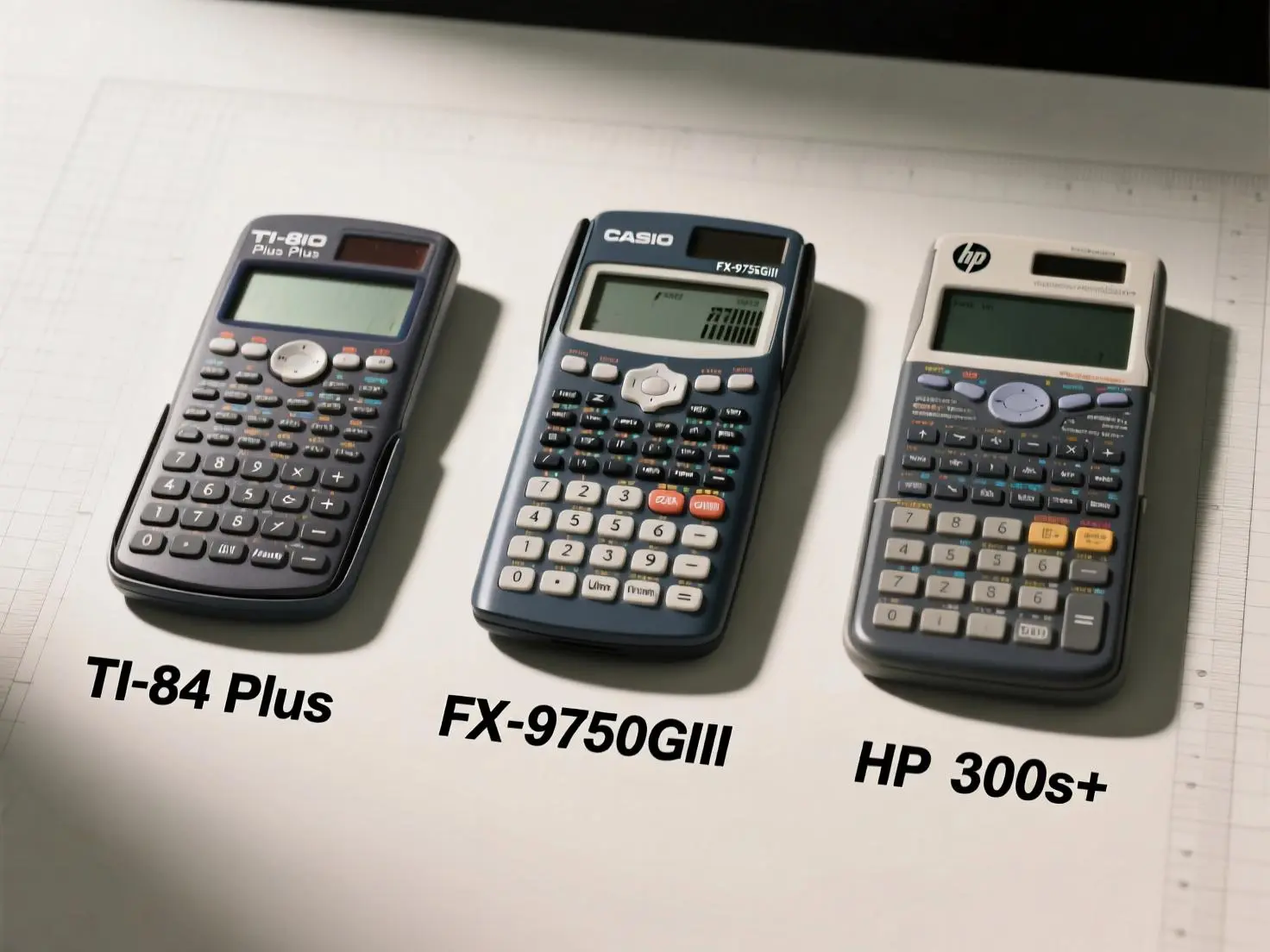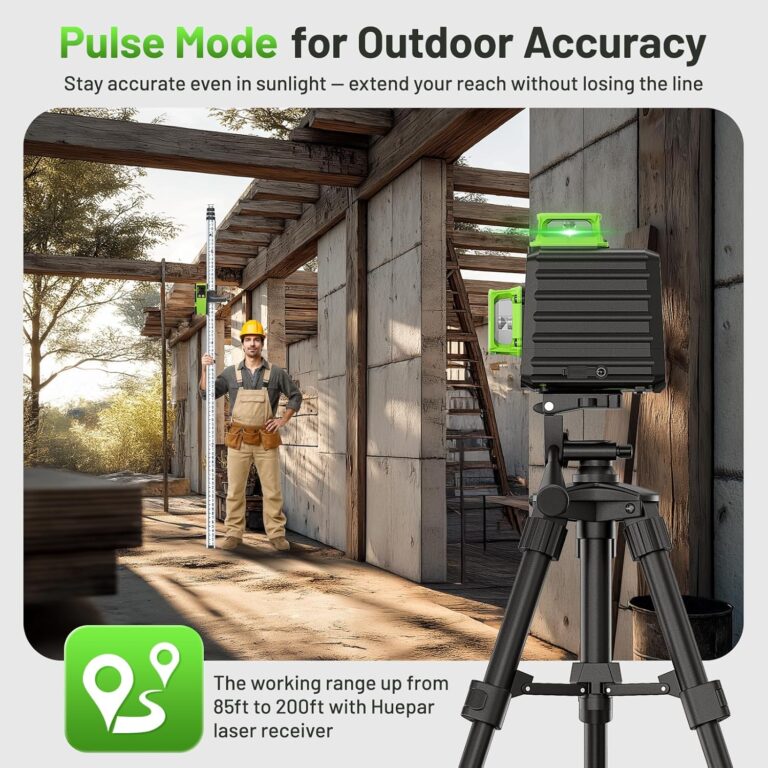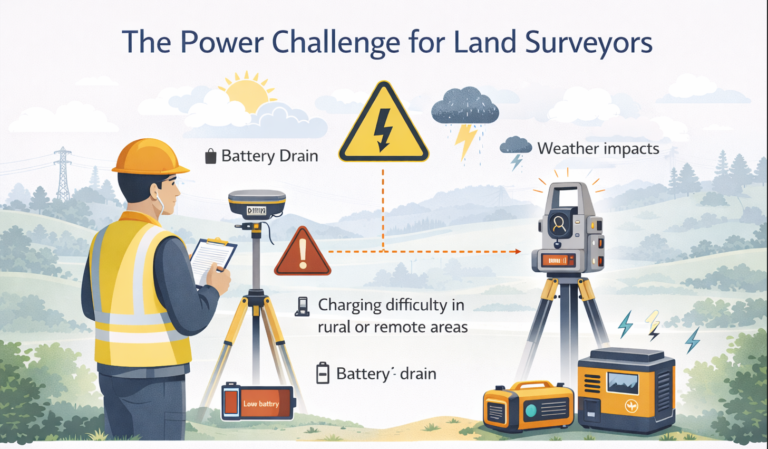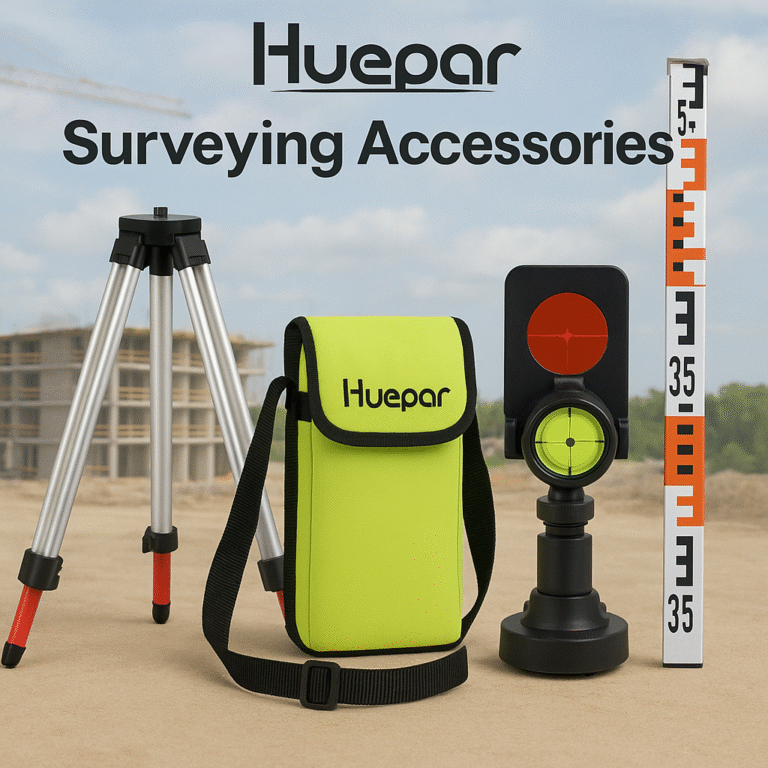Scientific Calculators for Surveyors: Comparing the TI-84 Plus, CASIO FX-9750GIII, and HP 300s+
In the world of land surveying, precision, speed, and reliability are non-negotiable. Whether you’re calculating angles, distances, coordinates, or performing complex trigonometric functions, having the right tool at your fingertips can make all the difference. While modern surveying equipment like total stations and GPS systems handle much of the fieldwork, the scientific calculator remains an indispensable companion—especially when you’re in the field without internet access or need to double-check calculations on the fly.
Despite the rise of digital apps and smartphone-based tools, many professional surveyors still rely on handheld scientific calculators for their durability, accuracy, and ease of use. In this comprehensive blog post, we’ll explore three of the most popular scientific calculators used by surveyors today: the Texas Instruments TI-84 Plus, the CASIO FX-9750GIII, and the HP 300s+. We’ll compare their features, usability, durability, and suitability for surveying tasks, helping you determine which scientific calculator best fits your needs.
Why Surveyors Still Need a Scientific Calculator
Before diving into the comparison, it’s important to understand why a scientific calculator is still relevant in the age of digital surveying software and mobile apps.
Surveying involves a wide range of mathematical operations, including:
- Trigonometric calculations (sine, cosine, tangent)
- Coordinate geometry (COGO)
- Azimuth and bearing computations
- Area and volume calculations
- Unit conversions
- Statistical analysis of field data
While software like AutoCAD Civil 3D, Trimble Business Center, or even mobile apps like FieldGenius can automate these tasks, a scientific calculator offers several advantages:
- No dependency on battery life or internet connection
- Instant access to functions without loading software
- Greater control over manual calculations
- Useful for quick field verifications and error-checking
Moreover, many surveyors use calculators during licensing exams (such as the FS or PS exams), where only approved models are permitted. This makes choosing the right scientific calculator not just a matter of convenience—but a professional necessity.
1. Texas Instruments TI-84 Plus – The Graphing Powerhouse
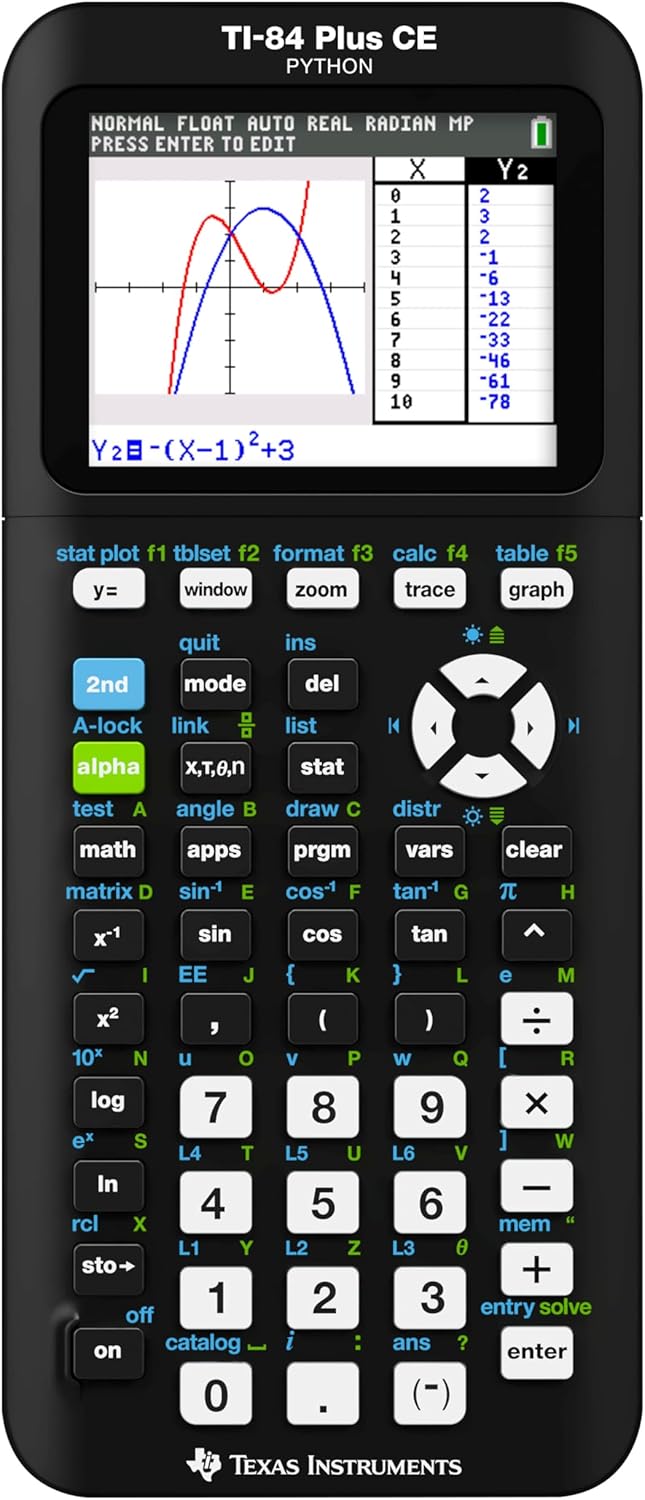
The TI-84 Plus by Texas Instruments is one of the most iconic calculators in education and engineering. While technically a graphing calculator, it is packed with scientific calculator functionality that makes it highly valuable for surveyors.
Key Features:
- Full-color backlit display (on newer models)
- Graphing capabilities for visualizing trigonometric and geometric functions
- Preloaded apps for geometry, finance, and statistics
- USB port for data transfer and connectivity
- Large memory for storing programs and data
- Supports programming in TI-BASIC and assembly
Advantages for Surveyors:
- Graphing functions allow visualization of curves, angles, and coordinate systems—ideal for understanding slope, elevation changes, or alignment issues.
- Can run custom COGO programs written by surveyors to automate repetitive calculations like inverses, bearings, or traverse adjustments.
- Excellent for exam use, as it’s approved for most standardized tests.
- Durable build and long-standing reputation for reliability.
Limitations:
- Overkill for basic tasks: Many surveyors only need trigonometric and coordinate functions, not full graphing.
- Battery consumption: Uses AAA batteries and can drain quickly with heavy use.
- Price: At around $109–$150, it’s significantly more expensive than basic scientific models.
- Learning curve: The interface can be complex for users who only need simple scientific functions.
Verdict:
The TI-84 Plus is ideal for advanced surveyors, students, or those who frequently perform complex computations. Its programmability and graphing features make it a powerful tool, but it may be excessive for professionals who only need quick, reliable calculations.
2. CASIO FX-9750GIII – The Budget-Friendly Hybrid
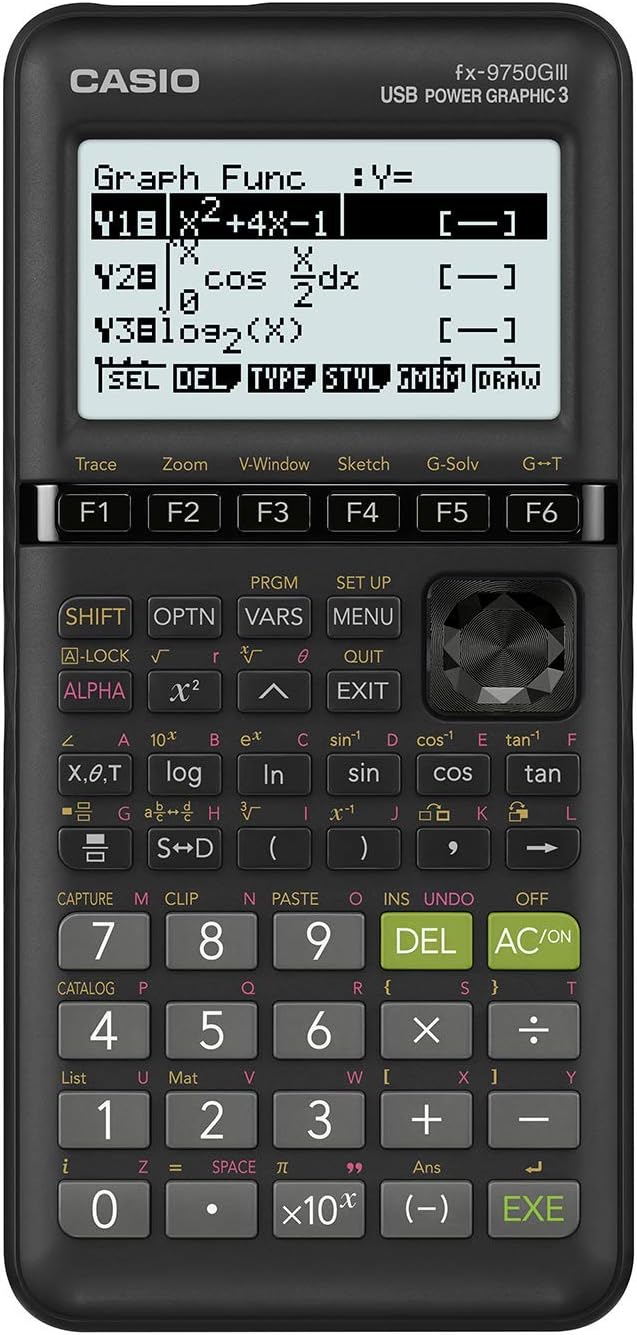
The CASIO FX-9750GIII is a mid-range graphing calculator that offers an excellent balance between functionality and affordability. While it’s marketed as a graphing calculator, it excels as a scientific calculator with enhanced capabilities.
Key Features:
- High-resolution monochrome display with backlight
- Over 3000 functions, including trigonometry, statistics, and calculus
- USB connectivity for data transfer
- Spreadsheet and table functions
- Programming support
- Large, easy-to-read keys
Advantages for Surveyors:
- Cost-effective: Priced around $50–$60, it’s significantly cheaper than the TI-84 but offers similar functionality.
- Extensive scientific functions: Handles all standard surveying math with ease, including degree-minute-second (DMS) calculations, polar/rectangular conversions, and statistical analysis.
- Durable and lightweight: Ideal for carrying in the field.
- Long battery life: Uses a single AAA battery with low power consumption.
- Exam-approved: Permitted on most standardized tests, including the FE, PE, and FS exams.
Limitations:
- No color display: Less visually engaging than the TI-84.
- Limited software ecosystem: Fewer third-party programs and apps compared to TI calculators.
- Smaller screen: Can make navigating menus slightly slower.
Why Surveyors Love It:
The FX-9750GIII is often praised for its simplicity and efficiency. It doesn’t overwhelm users with unnecessary features but still provides all the tools needed for field calculations. Its ability to handle coordinate geometry, angle conversions, and statistical functions makes it a favorite among civil engineering students and entry-level surveyors.
Verdict:
If you want a powerful scientific calculator without paying a premium, the CASIO FX-9750GIII is an outstanding choice. It’s perfect for surveyors who need more than a basic calculator but don’t require full-color graphing or advanced programming.
3. HP 300s+ Scientific Calculator
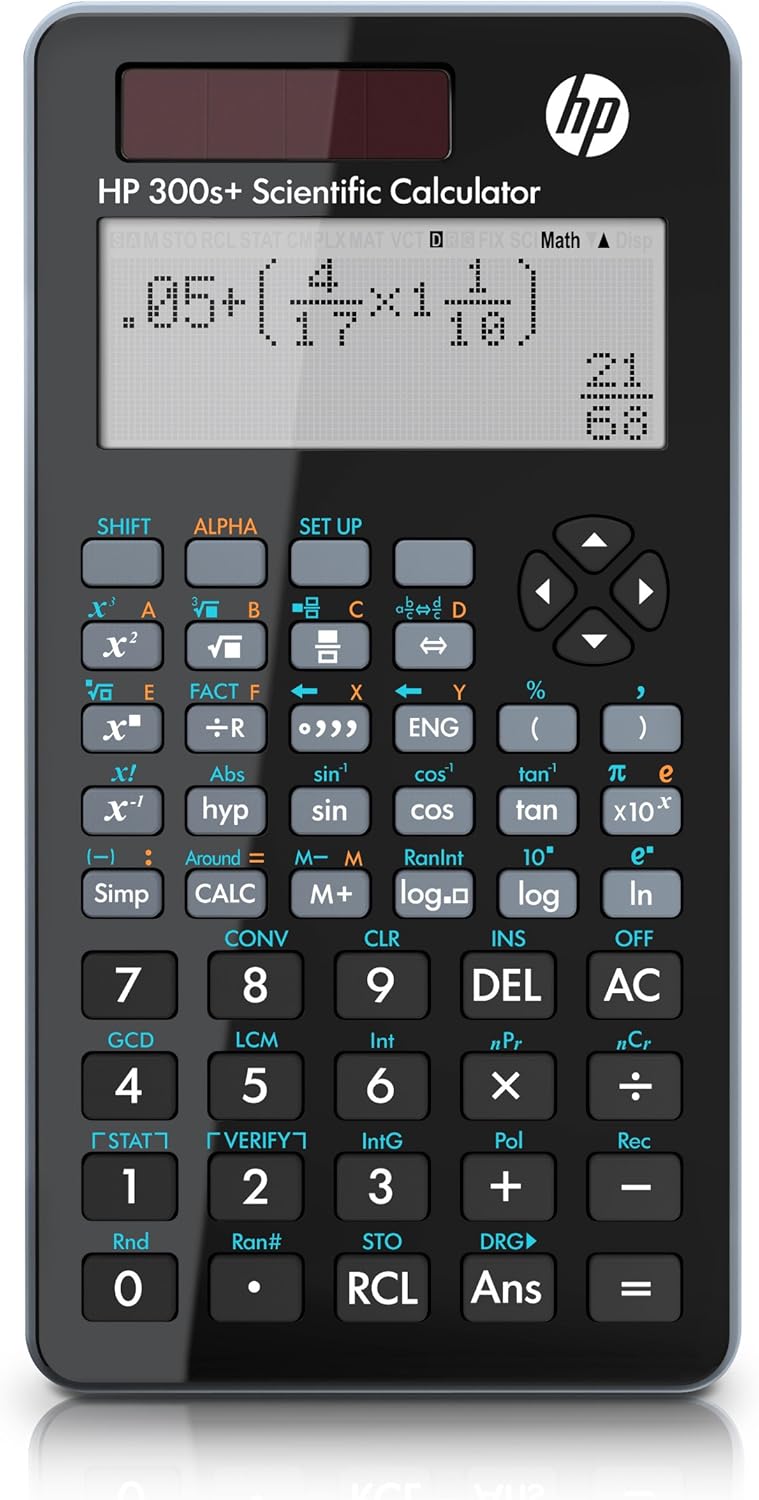
The HP 300s+ stands out as a true scientific calculator—designed for precision and ease of use without the added complexity of graphing. It’s a favorite among engineers, scientists, and yes—surveyors who value simplicity and accuracy.
The HP 300s+ stands out as a true scientific calculator—designed for precision and ease of use without the added complexity of graphing. It’s a favorite among engineers, scientists, and yes—surveyors who value simplicity and accuracy.
Key Features:
- 315 built-in functions
- Multi-line display with textbook-style notation
- Solar and battery dual power
- Natural textbook display (shows fractions, exponents, and symbols as they appear in books)
- Durable, spill-resistant design
- Compact and lightweight
Advantages for Surveyors:
- Intuitive interface: Functions are clearly labeled and easy to access—no deep menus or programming required.
- Solar-powered: Never worry about batteries dying in the field.
- Perfect for trigonometry and unit conversions: Essential for calculating bearings, distances, and coordinate transformations.
- High accuracy: Processes calculations with up to 24 digits internally, ensuring precision in long computations.
- Affordable: Typically priced under $20, making it a budget-friendly option.
Limitations:
- No graphing or programming: Cannot visualize data or automate tasks.
- No data storage: Cannot save formulas, programs, or calculation histories.
- Limited to basic scientific functions: Not suitable for complex statistical or engineering analysis.
Why It’s Ideal for Field Use:
The HP 300s+ is the “pocket calculator” of choice for many professional surveyors. It’s fast, reliable, and designed for on-the-spot calculations. Need to convert degrees to radians? Calculate a tangent? Find the inverse of a coordinate? The HP 300s+ does it in seconds—without boot-up time or menu navigation.
Verdict:
For surveyors who want a dedicated scientific calculator that’s fast, accurate, and affordable, the HP 300s+ is hard to beat. It’s not flashy, but it gets the job done—every time.
Head-to-Head Comparison: Which Scientific Calculator is Best for Surveyors?
| Feature | TI-84 Plus | CASIO FX-9750GIII | HP 300s+ |
|---|---|---|---|
| Type | Graphing | Graphing/Scientific Hybrid | Pure Scientific |
| Display | Color, backlit | Monochrome, backlit | Multi-line, non-backlit |
| Battery | 4 AAA | 1 AAA | Solar + LR44 |
| Price | $120–$150 | $50–$60 | $15–$20 |
| Programming | Yes (TI-BASIC) | Yes | No |
| Graphing | Yes | Yes | No |
| Exam Approved | Yes | Yes | Yes |
| Durability | High | High | Moderate |
| Field Usability | Good | Excellent | Excellent |
| Best For | Advanced users, students, complex tasks | Balanced use, cost-conscious pros | Quick field calculations, budget users |
Choosing the Right Scientific Calculator for Your Needs
So, which scientific calculator should you choose?
- Choose the TI-84 Plus if: You’re a student, educator, or professional who performs complex calculations, writes custom programs, or needs graphing capabilities. It’s the most powerful option, but comes at a higher cost and complexity.
- Choose the CASIO FX-9750GIII if: You want a balance between power and price. It’s perfect for surveyors who need more than basic functions but don’t want to spend over $100. Its programming and data storage features add significant value.
- Choose the HP 300s+ if: You prioritize speed, simplicity, and reliability. It’s ideal for field use, quick calculations, and professionals who already use software for complex tasks but need a trustworthy backup.
Final Thoughts: The Enduring Value of a Scientific Calculator
Despite the digital transformation in surveying, the scientific calculator remains a vital tool. It’s not just about crunching numbers—it’s about confidence in your calculations. When you’re standing on a remote site with no signal, no laptop, and a deadline looming, a trusted scientific calculator in your pocket can be a lifesaver.
Each of the three models reviewed—TI-84 Plus, CASIO FX-9750GIII, and HP 300s+—has its strengths. The key is matching the tool to your workflow.
- Students and educators will benefit from the TI-84’s versatility.
- Mid-career surveyors looking for value will love the CASIO.
- Field veterans who want speed and simplicity will swear by the HP.
Ultimately, no matter which scientific calculator you choose, what matters most is that it’s accurate, reliable, and ready when you need it. In surveying, where millimeters can make a difference, that’s a calculation worth making.

